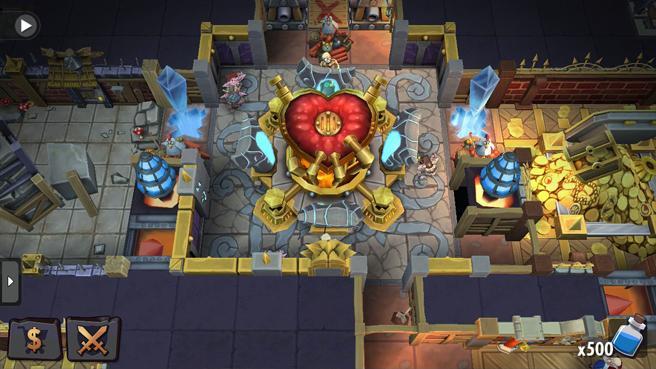Google Agrees to Stop Calling Games With In-App Purchases "Free," at Least in Europe
Google takes a major step in changing how it handles free-to-play games.

The pressure to stop referring to games with in-app purchases as "free" continues to grow. As part of an announcement from the European Commission today, it was revealed that Google will cease using "free" to describe such games. This news comes not long after a UK ad regulator declared Electronic Arts had to stop running certain advertisements for the microtransaction-heavy Dungeon Keeper mobile game that referred to it as free.
Last December, the EC put forth a request to companies like Google and Apple to reevaluate their handling of free-to-play games. Among other things, it specifically asked that consumers not be misled about the "true costs involved" with games marketed as free, and that children not be urged to make in-game purchases. The two companies then met with the commission to discuss these requests in February.
In response, the EC announced today that Google will institute a number of changes by the end of this September. The most significant of these is no longer using "free" in relation to games with in-app purchases. It will also tweak the default settings so that payment has to be authorized before every in-app purchase, though you'll be free to change this. Additionally, it will implement developer guidelines to disallow "direct exhortation to children," meaning they can no longer strongly appeal to children to make in-app purchases.
"In-app purchases are a legitimate business model, but it's essential for app-makers to understand and respect EU law while they develop these new business models." -- European Commission's Neelie Kroes
It's unclear whether Google will only make these changes in Europe, or if it will seek to get ahead of any future issues by making them worldwide. We've contacted Google to find out more about its plans.
Today's announcement says Apple has "regrettably" made "no concrete and immediate solutions" to the aforementioned points raised by the commission. It notes Apple has said it will make changes, but offered no time table or specifics for doing so. In a statement sent to Engadget, Apple defended its attempts to protect parents and children on the App Store and indicated iOS 8, the next version of its mobile operating system, will further expand these efforts. We've contacted the company for additional details.
The commission says enforcement--which includes "possible legal action"--is up to national authorities. There is not yet any indication about how they will proceed, or what action they will take if they don't feel Apple and other companies do enough to protect consumers.
"The Commission is very supportive of innovation in the app sector," said EC vice president Neelie Kroes. "In-app purchases are a legitimate business model, but it's essential for app-makers to understand and respect EU law while they develop these new business models."
Many consider the term "free-to-play" a misnomer; while typically true in the strictest sense, free-to-play games are often designed in such a way that it isn't reasonable to expect to play them for long without paying. Such was the judgment of the UK's Advertising Standards Authority when it made its Dungeon Keeper decision earlier this month.
The issue of children spending money without their parents' consent has been a hot topic for some time. One of the most famous instances of it happening came when one consumer's daughter spent $2,600 in mobile game Tap Pet Hotel.
Europe has been especially aggressive in trying to deal with the issue of free-to-play games and in-app purchases. For instance, the U.K.'s Office of Fair Trading laid out a set of guidelines free-to-play games would have to follow earlier this year. The U.S. meanwhile, has not been entirely idle; the Federal Trade Commission is in the midst of a lawsuit with Amazon over unauthorized charges, and back in January, it was announced that Apple would have to pay upwards of $32.5 million in refunds for unauthorized charges.
Are you happy to see that Google will stop referring to games with in-app purchases as "free"? Let us know your thoughts in the comments.
Got a news tip or want to contact us directly? Email news@gamespot.com
Join the conversation